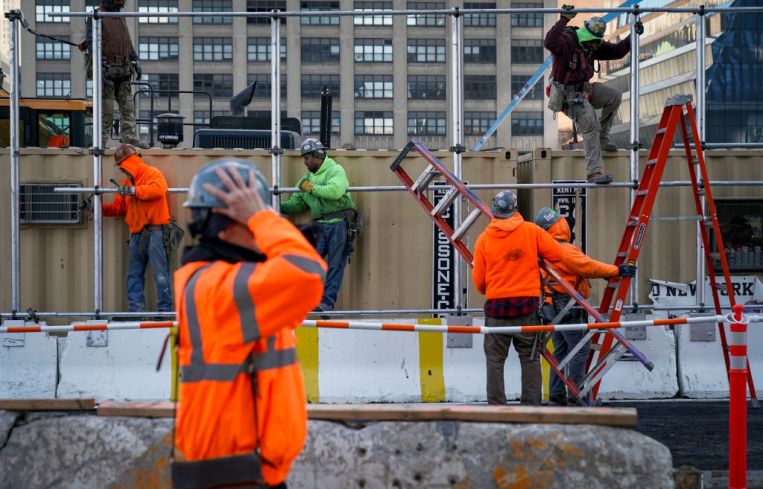NYC Must Incentivize Residential Development Before It’s Too Late
By Sam Eshaghoff September 13, 2023 12:00 pm
reprints
What you already know: New York City has long been a magnet for dreamers, professionals and adventurers seeking the vibrancy and opportunities that only our city can provide. With a little help from inflation, this demand has sent apartment rents to all-time highs, contributing to an ever-worsening affordability crisis, displacement of residents, and a rise in homelessness.
What you don’t know: A storm is brewing that threatens to further disrupt the supply-demand imbalance of apartments. The expiration of the 421a and Affordable New York tax abatement programs last year has brought a near halt to new apartment development, promising to send shock waves through the city’s real estate market, with a drastic surge in apartment rents being the likely outcome.
The numbers don’t lie. In the past 10 years, there have been an average of 7,218 permits for new residential construction filed per year. That number shrunk to 3,223 in 2022, less than half the rate of normal new residential supply.

For years, tax abatements have been the lifeblood of new residential construction in New York City. In the face of exorbitantly high property taxes, developers have relied on these incentives to make their projects economically feasible. The expiration of the 421a and Affordable New York tax abatements has created a grim reality: The pipeline of new housing stock is drying up at an alarming rate. This scarcity is set to collide head-on with a rental market that continues to get more expensive with no slowdown in sight.
The disturbing truth is that without tax abatements, there is little to no incentive for developers to start new projects. The economics of property taxes make the prospect of new construction daunting and, in most cases, financially unviable. Luxury developments, affordable housing and everything in between depend on these abatements to balance their budgets. Without these crucial incentives, development has already stagnated markedly, creating a supply bottleneck that can only lead to an upward spiral in rent prices.
It’s important to understand that the impact of this crisis isn’t immediate. The qualification period for tax abatements ended only in June 2022, and it takes several years for new development projects to navigate the complex maze of approvals, construction and finalization. This means that the units delivered to the market in any given year are the culmination of development efforts that began one to five years prior. Consequently, the full brunt of the abatement expiration has yet to be felt.
According to data site RentHop, the average rent for a one-bedroom apartment has risen more than 46 percent in just the past three years. As the city’s population continues to grow and employment opportunities remain a strong lure, the demand for housing in New York City remains unrelenting.
However, the housing supply cannot keep pace with this insatiable demand. The result is simple economics: When demand far outstrips supply, prices surge. In this case, apartment rents are poised to reach unprecedented heights, potentially rendering the world’s most important city unaffordable for more of its residents.
The implications of this crisis are profound. Affordable housing, already a scarce resource in New York City, will become even more elusive. The diverse fabric that makes the city thrive is at risk of unraveling as people are forced to leave their homes and communities due to skyrocketing rents. Businesses that rely on a steady influx of residents will struggle to attract and retain employees. The very essence of New York’s dynamism and diversity hangs in the balance.
What makes matters worse is that a shortage of homes for sale, high home prices and high interest rates have made it nearly impossible for renters to become homeowners now, which in normal years provides some relief to the rental market.
If action is not taken promptly, the looming surge in apartment rents could escalate into a full-blown affordability crisis, reshaping the city in ways we can scarcely imagine. Urgent consideration must be given to new incentives that stimulate residential construction. The lifeblood of New York City is its people, and they deserve a place they can call home without the fear of being priced out.
Sam Eshaghoff is the founder and managing principal of West Egg Development.



